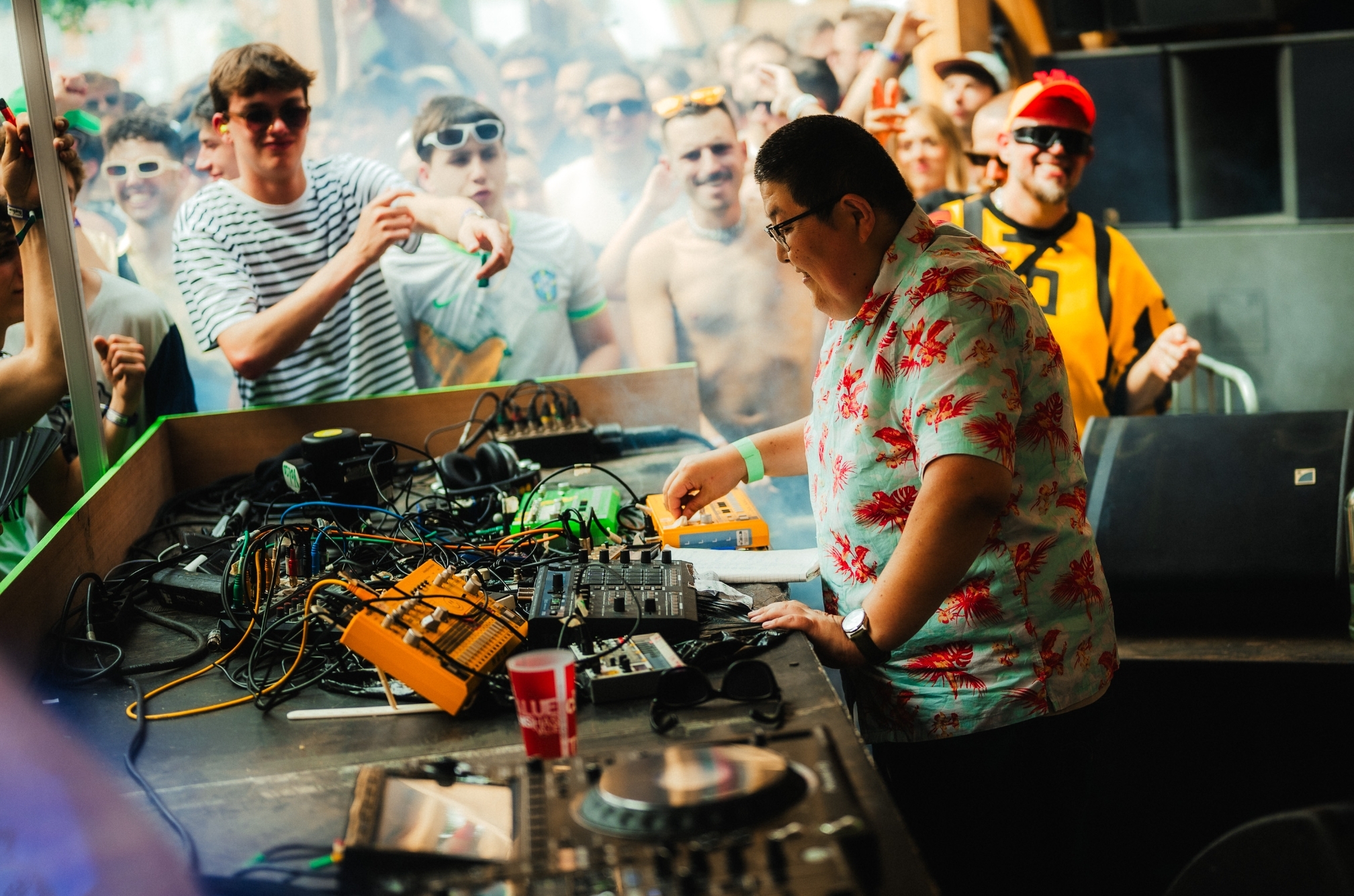 Interviews
Interviews
Artist Spotlight: Meet Atsuo the Pineapple Donkey, Japan’s rising synth maverick
Elle Katayama speaks to the enigmatic artist ahead of his headlining gig at the first-ever ACiD Open Air
Atsuo the Pineapple Donkey is a fresh and exciting name that's recently popped up in the electronic music scene, with a journey as unconventional as his moniker.
What started as a quirky name for his hostel in Kyushu, Japan, has evolved into a persona captivating festival-goers with synth-driven sounds.
Originally rooted in the punk and rock scenes of the '90s, Atsuo took a surprising turn toward electronic music during the pandemic. Despite not being deeply connected to the electronic genre initially, Atsuo's free-spirited approach and unrestrained creativity have led him to perform at international festivals like Belgium's Paradise City and the Netherlands’ Dewei De.
With a growing fanbase and a determination to push his boundaries, Atsuo the Pineapple Donkey's transformation from hostel owner to rising musician is a tale of exploration, chance, and unstoppable creative drive. He’s now gearing up for his first festival performance in Japan, ACiD OPEN AIR, where he'll fly the flag for his country as a headliner, alongside international heavyweights Sven Väth, Monolink, and Solardo.
We dive deeper into the mind behind the music, exploring Atsuo’s inspirations, his journey, and what lies ahead for this unexpected talent.
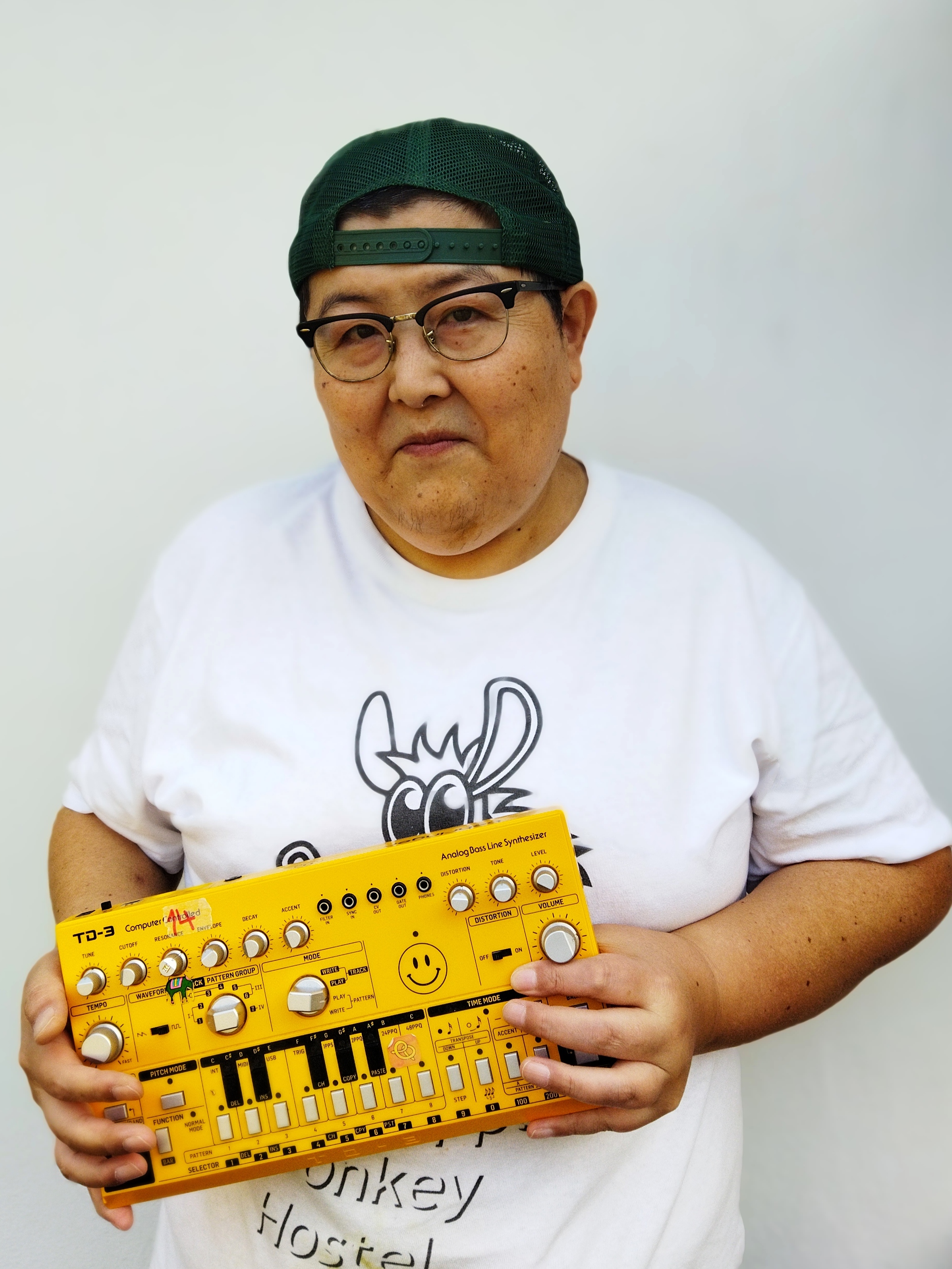
Hello Atsuo-san! Yoroshiku onegaishimasu (Nice to meet you). Many of us are curious—what's the story behind your name?
I spent about a year thinking of a name for my hostel, which I opened back in 2019, and eventually landed on "Pineapple Donkey Hostel." I wanted something memorable and quirky, plus I preferred using English over stereotypical Japanese names like "Ninja" or "Samurai." Having travelled around the world for two years before opening the hostel, I wanted a name that would be easy for people to remember. It doesn’t have a deep meaning, but I liked the sound of it and had a personal fondness for the words.
You’ve become known for blending genres like synth-rock, electropop, and even 8-bit sounds. How do you approach fusing these genres, and what drives you to experiment with such diverse influences?
Honestly, I’m not a huge fan of electronic music, which gives me the freedom to explore it without feeling restricted. My music experimentation actually began as a way to promote my hostel, but it gradually turned into something more serious. By 2021, I started posting my music, and in 2022, with the pandemic still going, I focused on building my audience, constantly refining my work day by day.
Your performances are known for being energetic and playful, especially with the can of Heinz Baked Beans on your desk. What’s the story behind that?
Thanks for noticing! To be honest, the beans don’t really play a role in my creative process. I’m the type who focuses on what’s in front of me, which in this case, is my instruments and the music.
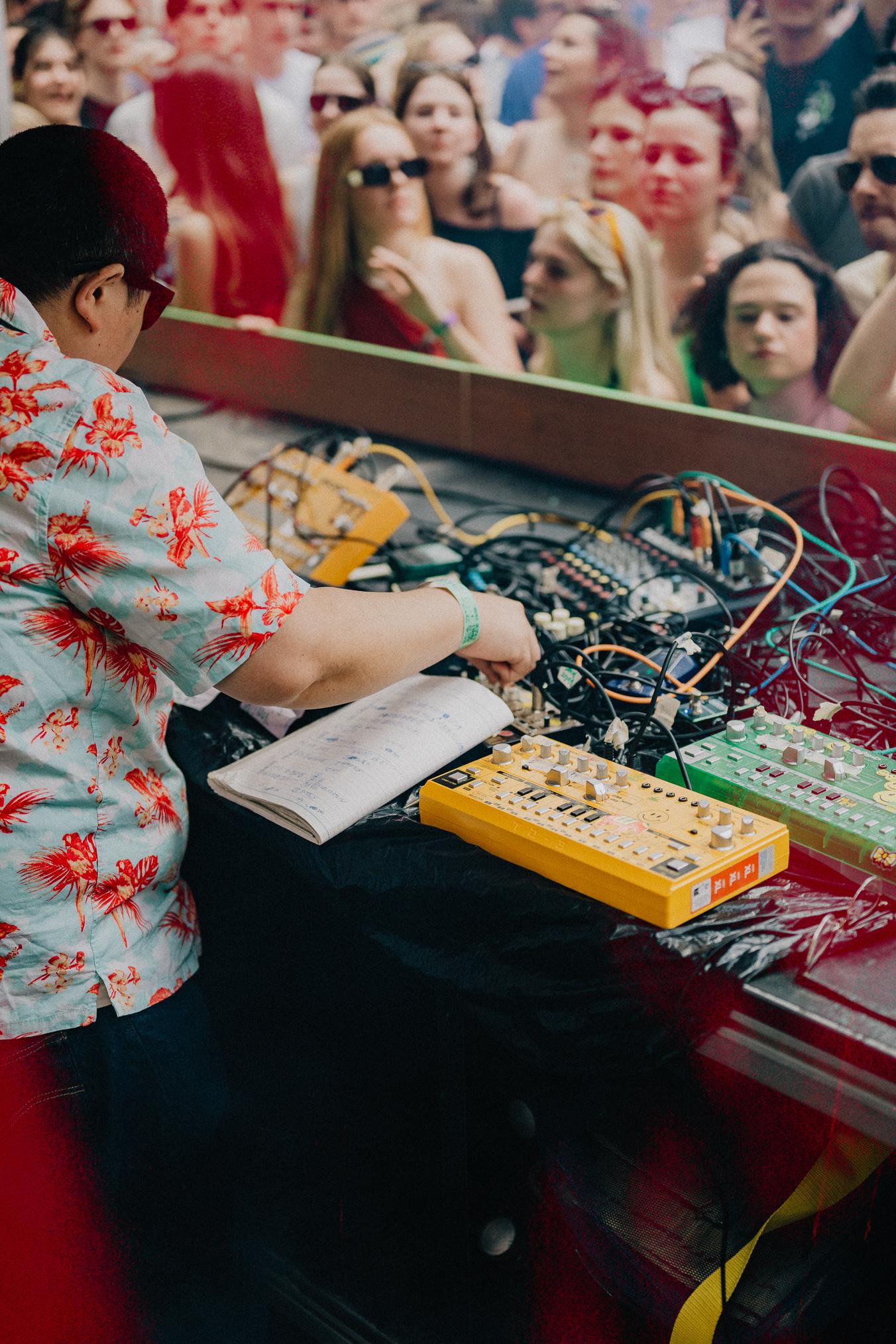
You’ve gained traction on social media, particularly Instagram and TikTok. How important is the visual and social aspect of your artistry in connecting with your audience?
I initially started Instagram for hostel promotion, but during the pandemic and after, social media became a huge part of my journey. Now, it feels like a duty. I take extra care in curating my posts to reflect my work, and I pay close attention to fan reactions. Social media engagement plays a big role in my reach and performance opportunities.
Read this next: Artists exciting us in 2024 / September
You come across as hardworking and disciplined. How do you stay so focused, and what instantly puts a smile on your face?
Music, of course, but also good food! While music is my serious passion, both music and food are simple pleasures that bring me instant joy.
What’s your earliest memory of music?
I’d say it was in high school when I started learning guitar as a hobby. In the early '90s, there was a "band boom" in Japan, and I got into punk and ska bands like the Sex Pistols, The Specials, and even rockabilly like the Stray Cats. For Japanese bands, I liked LÄ-PPISCH. But let me be clear—I was never particularly good at playing guitar.
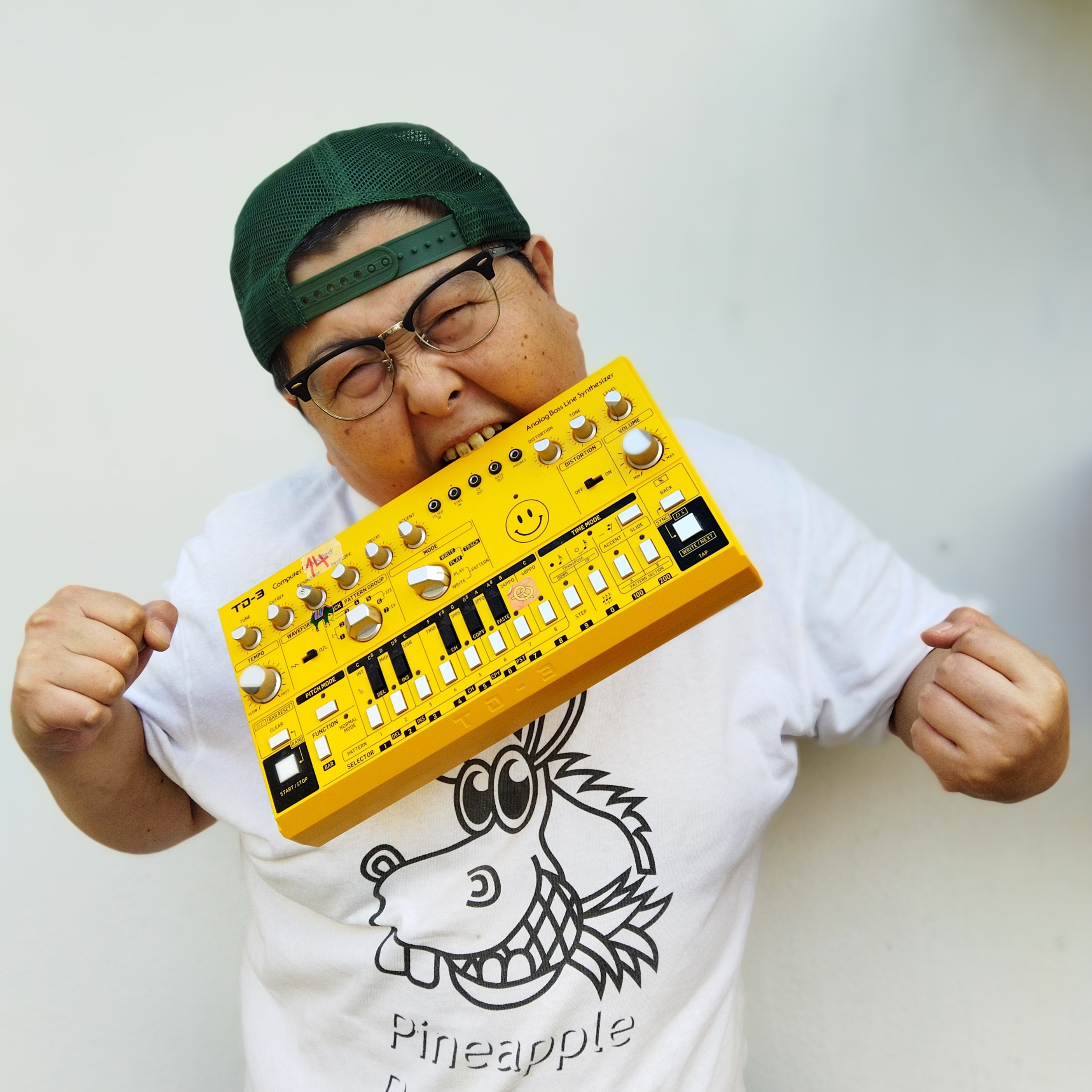
You’re based in the tranquil Kyushu mountains, which seems like a contrast to the high-energy world of electronic music. How does your environment influence your work?
Honestly, my environment doesn’t directly influence my music. I’ve lived in Takachihouchou, a small town in Kyushu, since 2018. I was born in Kumamoto and moved here to open my hostel. I’d say if it weren’t for COVID-19, I wouldn’t be where I am now.
Read this next: AMAPINIGHT is heating up Japan with amapiano, dance, and gyaru spirit
Improvisation plays a big role in your live sets. How do you keep your performances fresh?
During live shows, my main focus is on engaging the audience. I closely watch how the crowd moves and reacts, taking notes from other performers to improve my own sets. Since I still consider myself a beginner, I’m careful with how I handle the crowd. So far, I’ve only performed at two festivals, both in Europe. Due to the way the stage was built, I could only see the people right in front of me, so I worked hard to keep them engaged. When I checked the videos afterward, I was relieved!
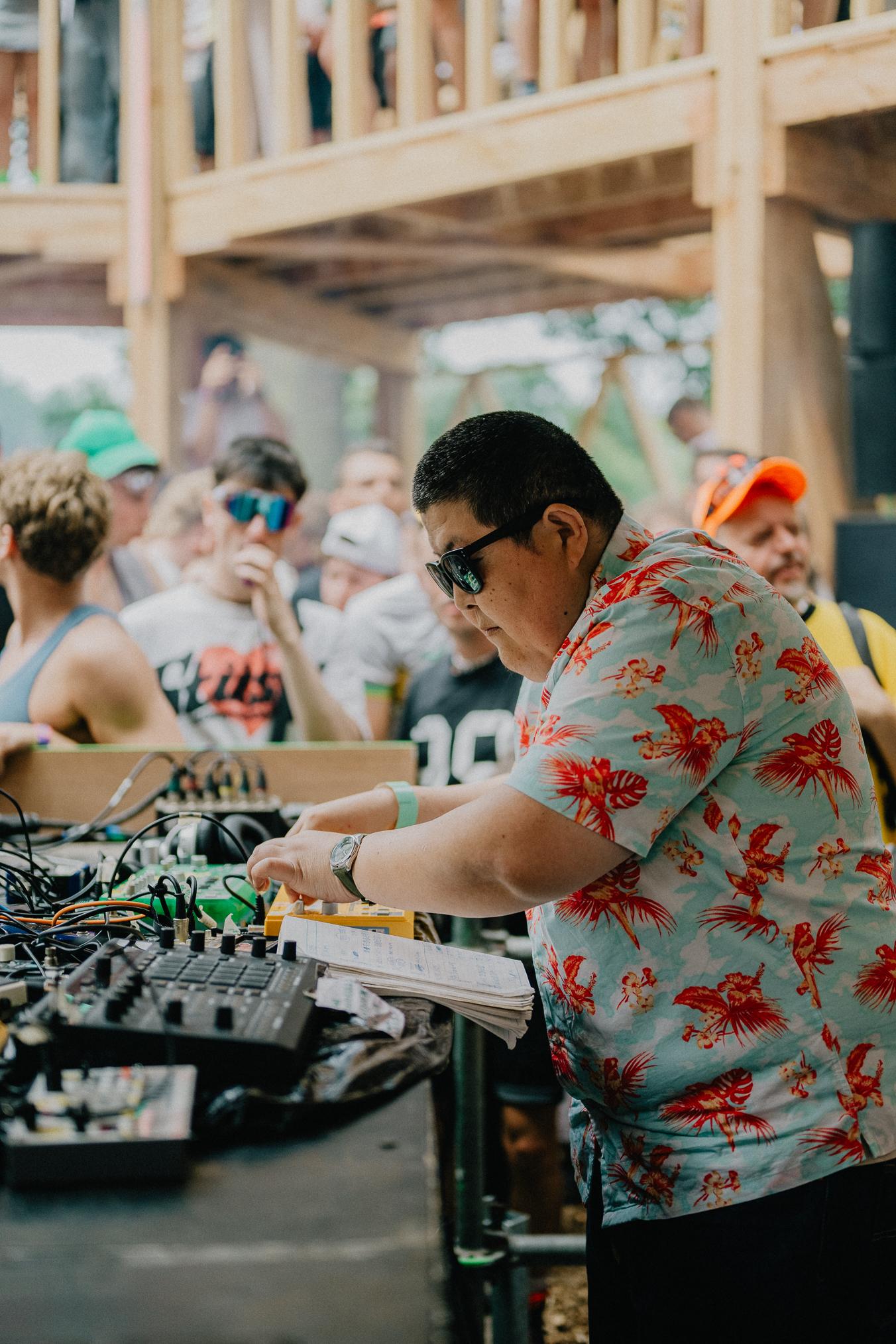
Read this next: The year that budots broke: the Filipino spirit set to 140BPM
With your rising popularity, what’s next for Atsuo the Pineapple Donkey? Any upcoming collaborations or projects you’re excited about?
There’s nothing concrete yet, as this year and next are going to be hectic. But I want to expand beyond festivals and explore opportunities like film scores. I’m eager to broaden my artistic reach and continue experimenting with new projects. Let’s see how it goes!
Your music has been described as vibrant and fun, yet complex. How do you balance these elements?
I don’t overthink my process. I’d say my approach is intuitive and spontaneous. What I post on social media are the ones I’ve chosen after many attempts. If something doesn’t meet my expectations, I archive it.
Finally, your performances often include quirky visuals and surprises. Can you give us a sneak peek into your next live show?
For my next performance at ACiD OPEN AIR, I’ll be switching up my tools. I’m particularly excited to swap my Korg sampler for a Roland SP 404!
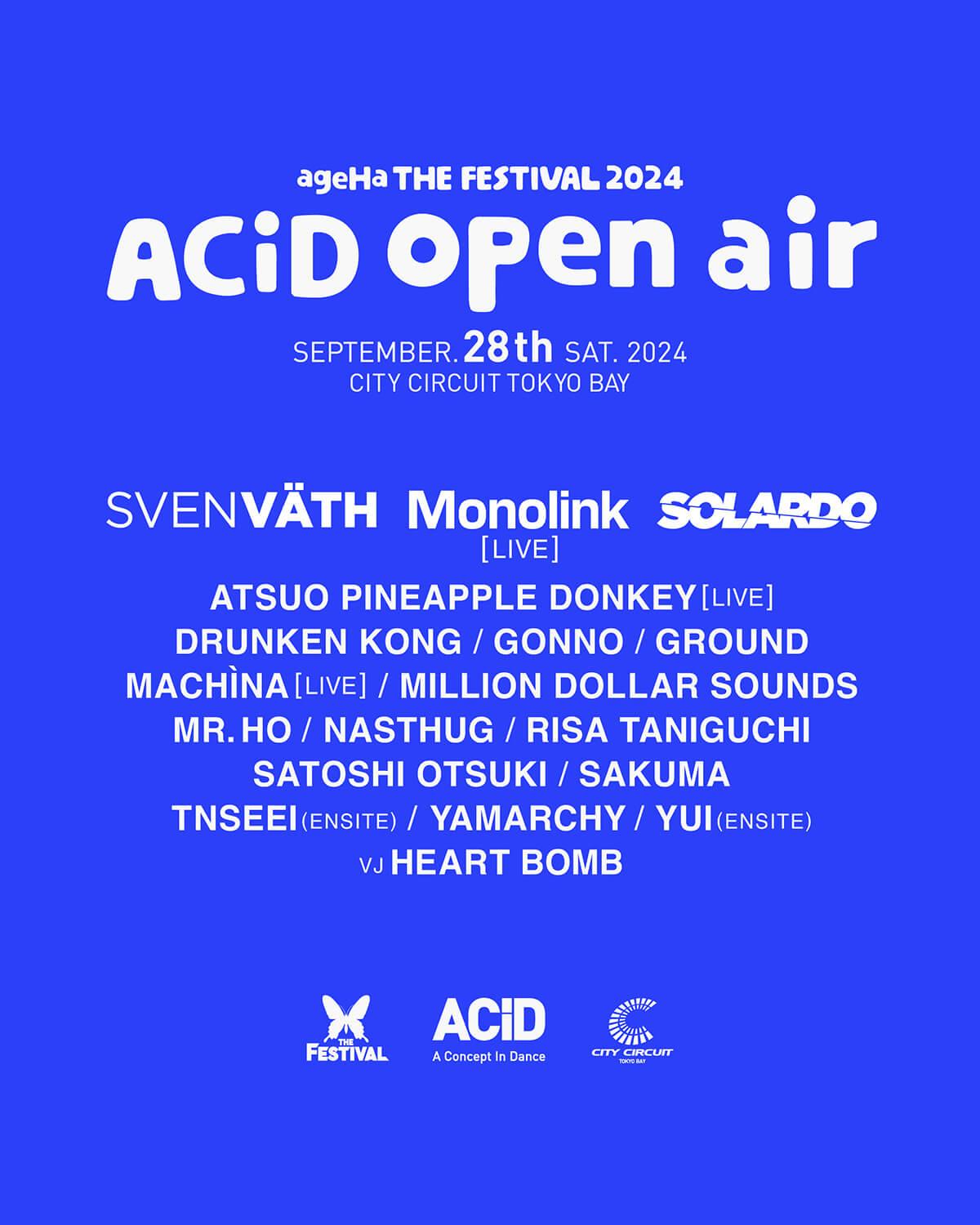
ACiD OPEN AIR takes place at City Circuit Tokyo Bay on September 28; get tickets to the event here.
Elle Katayama is an intern writer for Mixmag Asia, follow her on Instagram.
Cut through the noise—sign up for our weekly Scene Report or follow us on Instagram to get the latest from Asia and the Asian diaspora!


